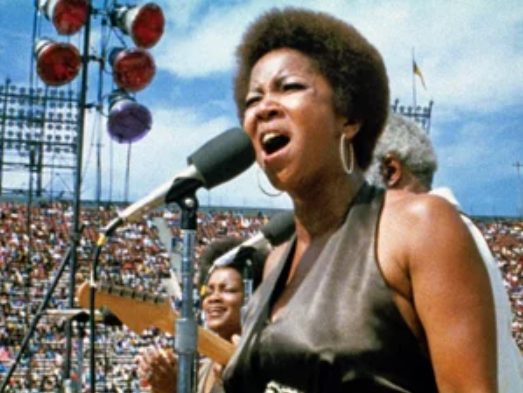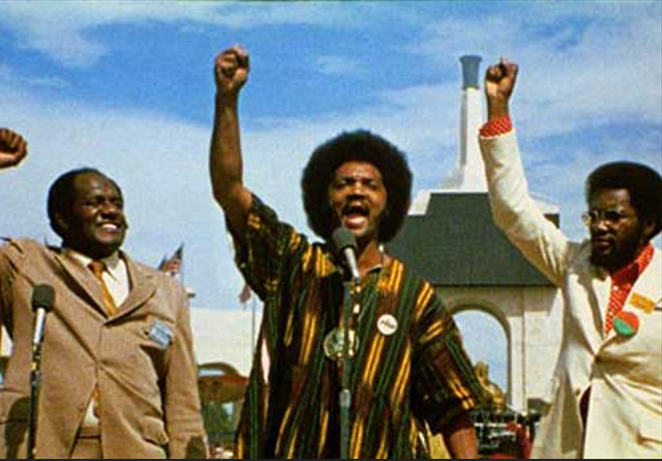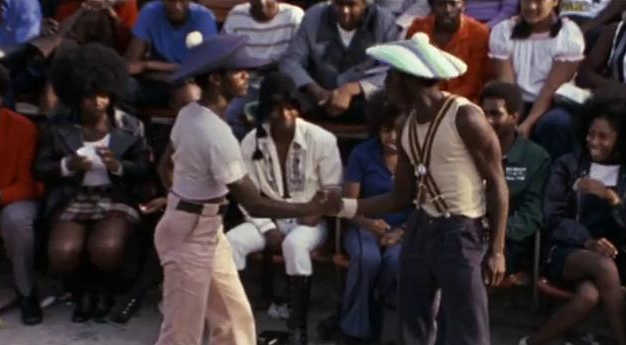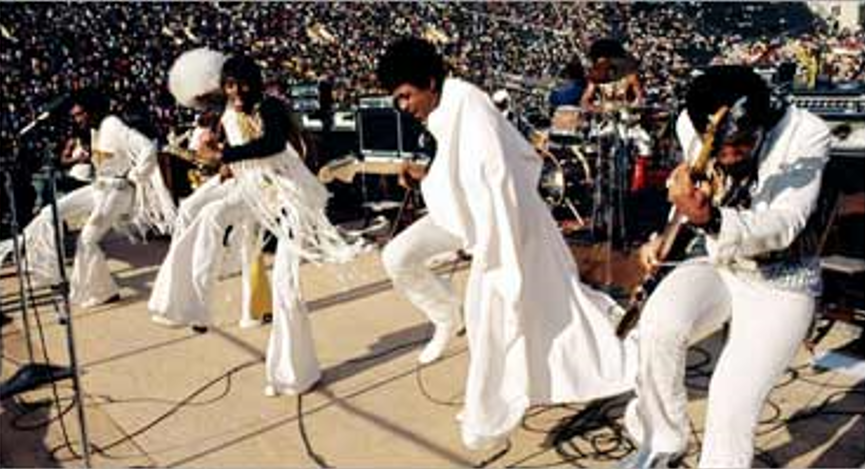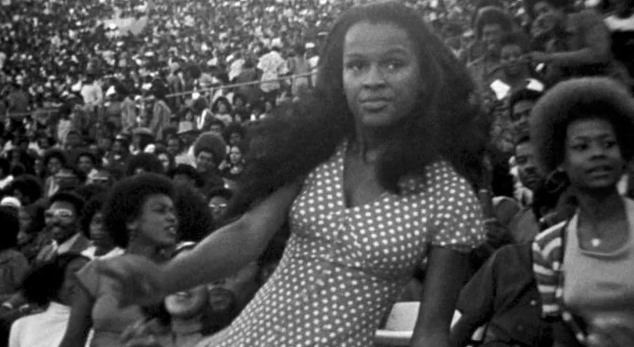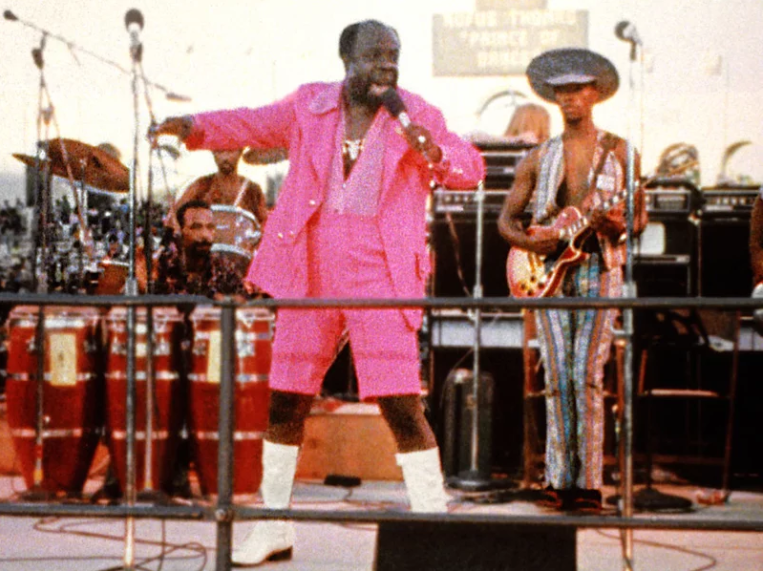WATTSSTAXX
“WATTSTAX FESTIVAL & CONCERT“
It is of the utmost importance to understand the significance of this concert ,in the movement for unity & equality in the African American community during the same time as Social conscious music was sending a message , social conscious dances like locking was featured on soul train , and was sweeping the intercity streets.
Wattstax a concert held yearly that was made into the 1973 documentary film by Mel Stuart that focused on the 1972 Wattstax music festival and the African American community of Watts in Los Angeles, California. The film was nominated for a Golden Globe award for Best Documentary Film in 1974.
The concert
The concert was held at the Los Angeles Memorial Coliseum on August 20, 1972, and organized by Memphis's Stax Records to commemorate the seventh anniversary of the Watts riots. Wattstax was seen by some as "the Afro-American answer to Woodstock". To enable as many members of the black community in L.A. to attend as possible, tickets were sold for only $1.00 each. The Reverend Jesse Jackson gave the invocation, which included Reverend William H. Borders, Sr.'s "I Am - Somebody" poem, which was recited in a call and response with the assembled stadium crowd. In the film, interspersed between songs are interviews with Richard Pryor, Ted Lange (The brother of GoGo brothers family member Greg Lange) and others who discuss the black experience in America.
The film begins with an introduction by Pryor, followed by shots of urban life on the streets of Watts, accompanied by the song "What You See Is What You Get" by The Dramatics. Mel Stuart was not entirely satisfied with the full concert footage and added the Pryor interludes between certain songs and live shots of urban life in the city. Stuart wanted someone to narrate between the scenes to create a transition in a comedic but meaningful way. Scenes of the concert venue being set up are accompanied by the song "Oh La De Da" by the Staple Singers, and another Staples tune, "We the People", backs scenes of the crowds entering the stadium.and clips of dancers, which featured one of the first early clips of several dancers featuring a handshake dance that became part of the street dance known as locking, were in the film.
The handshake of brotherhood
Later during an interview with Staxx records owner Al Bell ,the question was asked "What is the significance of your use of the two dancers in your fim and promotional poster" his answer was that handshake and the dance of locking from soul train was the visual manifestation of the spoken word
The first song played in concert is the "Star-Spangled Banner" performed by Kim Weston while the audience sits. Jesse Jackson then encourages the audience to raise their right fists in the air while he recites his poem "I Am Somebody". Kim Weston follows with a performance of the "Black National Anthemv", "Lift Ev'ry Voice and Sing". While she sings the audience becomes more invigorated, and people stand and continue to raise their fists in the air. The scene is inter-cut with images from African-American history. Jimmy Jones sings "Somebody Bigger Than You and I".
A brief discussion about religion is followed by a performance of "Lying on the Truth" by the Gospel band The Rance Allen Group, inter-cut with shots of churches around Watts. The song "Peace Be Still" is heard, and eventually seen, performed by The Emotions in a local church. Next, the film briefly discusses Gospel music, and "Old-Time Religion" is performed by "The Stax Golden 13", composed of William Bell, Louise McCord, Debra Manning, Eric Mercury, Freddy Robinson, Lee Sain, Ernie Hines, Little Sonny, Eddie Floyd, the Newcomers, the Temprees, and Frederick Knight. After a brief interlude with Pryor, Melvin Van Peebles introduces the Staple Singers, who play "Respect Yourself" in concert.
The Bar-Kays follow another montage commentary on African-American identity. The Bar-Kays saxophonist, Harvey "Joe" Hendersonspeaks saying, "Freedom is a road seldom traveled by the multitude" (a phrase later made famous when it was sampled by Public Enemy in "Show 'Em Whatcha Got"). The Bar-Kays then play "Son of Shaft." A montage of conversations about unemployment and crime in Watts plays.
Albert King plays "I'll Play The Blues for You" which is quickly cut to another conversation with the people of Watts about blues musicand depression. An unusual piece of footage is shown of performance of "Walking the Backstreet and Crying" by Little Milton, presented in the style of a music video, with Milton lip-synching the song near a train station with a burning trash can next to it.
Rufus Thomas talks about a character named "Jody" - someone who "is that fella, when you leave home at six o'clock, he's in that house at six-one." Followed by shots of various rich African Americans exiting their expensive cars and wearing flamboyant clothing, while the song "Jody's Got Your Girl and Gone" by Johnnie Taylor is being performed in a night club. Pryor performs a sketch discussing gambling.
A montage of couples in Watts is shown while a discussion about dating and romance is heard, with "I May Not Be What You Want" performed by Mel and Tim in the background. The scene then changes to a performance of "Picking Up the Pieces" by Carla Thomas. During this song, several red, black and white balloons are released in the stadium. More conversations about gender roles and romance in the African-American society follow.
In the next segment, Rufus Thomas performs "The Breakdown" and "Do the Funky Chicken." There is another interlude with Pryor, and then the hit ballad "If Loving You is Wrong, I Don't Want to be Right" by soul singer Luther Ingram. After the final interlude, Isaac Hayes enters the stadium to a large audience reaction (the concert took place on his 30th birthday). Hayes' performance of "Rolling Down a Mountain" in the original version of the film was recorded on a sound stage at a later date because MGM refused to allow the film-makers to use Hayes' concert performances of Theme from Shaft" and "Soulsville".
These songs are restored on Region 1 DVD release of the film. The camera pans out at the end of the stadium showing several people during the interludes in the film while the speech "I Am Somebody" is being shouted again followed by "Lift Every Voice and Sing" as the credits roll.
